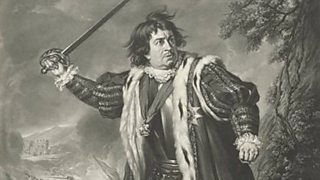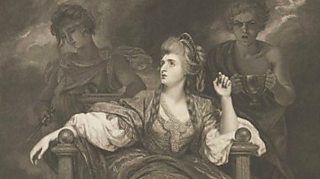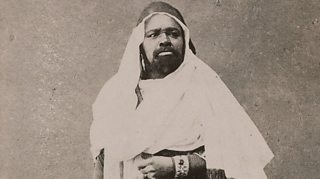Was Shakespeare a genius?
By Greg Buzwell, Curator at the British Library
To quote Prince Hamlet from a speech to Rosencrantz and Guildenstern: "How like a god!". There's no denying William Shakespeare's genius, but has Stratford-upon-Avon's most famous son been raised up too high? Such was the admiration of the playwright that writer and Nobel Prize for Literature winner George Bernard Shaw coined it bardolatry.
He used the term to describe the uncritical and frequently quasi-religious adoration of Shakespeare’s achievements, particularly as it occurred in its Romantic and 19th-century heyday.
-
![]()
Shakespeare Lives
The nation’s greatest performing arts institutions mark 400 years since the Bard's death
-
![]()
Shakespeare Festival 2016
The BBC celebrates the genius of the bard
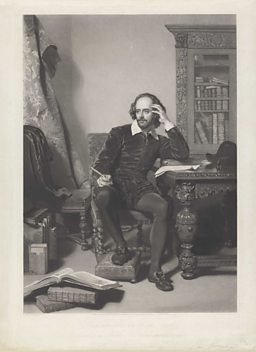
About Shakespeare on Tour
From the moment they were written through to the present day, Shakespeare’s plays have continued to enthral and inspire audiences. They’ve been performed in venues big and small – including inns, private houses and emerging provincial theatres.
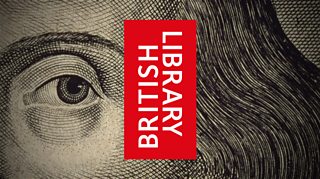
BBC English Regions is building a digital picture which tracks some of the many iconic moments across the country as we follow the ‘explosion’ in the performance of The Bard’s plays, from his own lifetime to recent times.
Drawing on fascinating new research from Records of Early English Drama (REED), plus the British Library's extensive collection of playbills, as well as expertise from De Montfort University and the Arts and Humanities Research Council, Shakespeare on Tour is a unique timeline of iconic moments of those performances, starting with his own troupe of actors, to highlights from more recent times. Listen out for stories on Shakespeare’s legacy on your BBC Local Radio station from Monday 21 March, 2016.
You never know - you might find evidence of Shakespeare’s footsteps close to home…
Craig Henderson, BBC English Regions
During this period Shakespeare was elevated to an almost godlike status, becoming the nation’s foremost poet and the unchallenged epitome of literary genius. A late 18th Century painting by George Romney entitled The Infant Shakespeare attended by Nature and The Passions even depicted Shakespeare as a baby in a composition that automatically put the viewer in mind of a nativity scene.
Shakespeare was elevated to an almost godlike status, becoming the nation’s foremost poet and the unchallenged epitome of literary genius.
The term ‘bardolatry’ itself was coined by George Bernard Shaw in 1901 and it owes something to Ben Jonson’s comment (in Discoveries, c.1630) that he loved Shakespeare and honoured his memory ‘on this side idolatry, as much as any’.
Shaw had ambivalent feelings about Shakespeare, admiring much of his work and yet conscious of his flaws and concerned that the adoration of Shakespeare and the continual revival of his work had an adverse impact upon contemporary playwrights, and upon the promotion of new ideas.
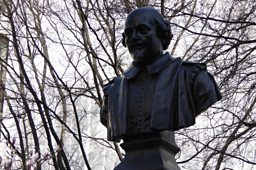
The actor David Garrick’s Shakespeare Jubilee, held in Stratford-upon-Avon in 1769, provides an early example of bardolatry. Not a single line of Shakespeare’s poetry was performed at the Jubilee, and yet the whole event with its fireworks, masquerade balls and souvenirs was an outpouring of rapturous adoration of The Bard's genius.
‘Tis he, ‘tis he / The god of our idolatry.
And of course Garrick’s own celebrated Ode included the line ‘‘Tis he, ‘tis he / The god of our idolatry’. The Jubilee revived interest in Shakespeare, put Stratford-Upon-Avon firmly on the tourist map and began the commercial opportunities associated with Shakespeare-themed merchandise that continue to this day.
Shakespeare's Early Days
Another example of bardolatry can be seen in the way Shakespeare began to appear as a character in plays and films. A playbill from 1832 advertises a performance of Shakespeare’s Early Days, the first English play to feature the writer as a protagonist.
In addition to a lengthy dream sequence, in which the young playwright is granted a vision of his future creations, the play also made use of a local legend which told of Shakespeare being caught poaching deer from Charlecote Park in Warwickshire.
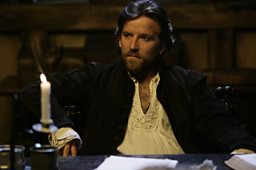
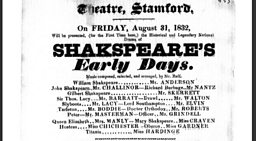
The romantic appeal of the legend is hard to deny, and many believe Justice Shallow in The Merry Wives of Windsor is based on the first Sir Thomas Lucy, the magistrate before whom Shakespeare would have appeared.
Shakespeare and his work now permeate film, popular music, comedy, art and, indeed, every conceivable aspect of our cultural lives.
During the 20th century bardolatry began to overlap with pastiche and parody.
By this point Shakespeare and his work had become so ubiquitous that his face was instantly recognisable (even though to this day nobody really knows exactly what he looked like), while a figure walking on stage holding a skull automatically puts the audience in mind of Prince Hamlet (no matter what the wider context).
No longer just a revered figure in the world of English Literature, Shakespeare and his work now permeate film, popular music, comedy, art and, indeed, every conceivable aspect of our cultural lives.
The concept of bardolatry will be explored in the British Library’s Shakespeare in Ten Acts exhibition (15 April – 6 September 2016).
Related Links
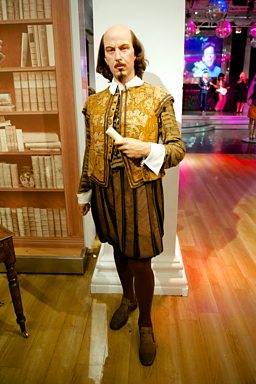
From the experts:
-
![]()
Who can we thank for Shakespeare's popularity?
The David Garrick Effect
-
![]()
The first lady of Shakespeare
Sarah Siddons helped legitimise the role of female performers
-
![]()
The actor who overcame prejudice to win over audiences
Ira Aldridge toured extensively during the 19th Century


